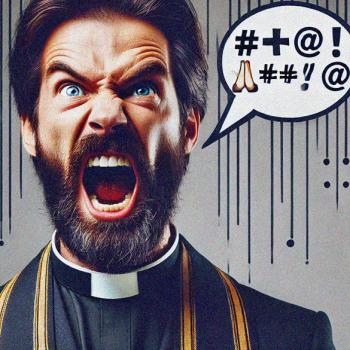
The Never-Ending Cycle of Abuse: The Magical Reappearance Trick
Christianity has a knack for resurrecting careers that should be as dead as Lazarus pre-miracle. It’s like a magic trick, only the rabbit pulled out of the hat is an abusive pastor. The routine is old but somehow still gets applause: a scandal erupts, the leader puts on a public performance worthy of an Oscar—complete with insincere sobbing and rehearsed humility—and poof! After a “season of healing,” they’re back, front and center.
Mark Driscoll, Perry Noble, Matt Chandler, Johnny Hunt, Carl Lentz—sounds like a guest list for a Narcissist Anonymous meeting. They’re the beneficiaries of a twisted inheritance from spiritual OG abusers like Jim Bakker and Jimmy Swaggart. In a world where a Google search can immortalize your worst moments, it’s impressive, really, how these guys find their way back to the pulpit and profits.
Forgiveness vs. Responsibility: The Biblical Gaslighting Olympics
“But who are we to judge?” they say. Ah, yes, the age-old excuse of wrapping hypocrisy in the cloak of scripture. This is not about judgment; it’s about accountability and the welfare of a community. If Jesus was flipping tables for lesser crimes, why are we laying down the red carpet for these men? Those carefully crafted PR admissions aren’t contrition; they’re crisis management.
Let’s be real. Claiming you’re ‘renewed by Christ’ after your abusive actions have been exposed is like declaring bankruptcy and expecting to keep your mansion and yacht. It’s a spiritual get-out-of-jail-free card that mocks the very essence of a faith built on love and humility.
The Cost of Silence: The Inconvenient Truth About Theological Spaces
Those who have been abused often find that the church seems far more enamored with the abuser’s redemption arc than with survivor healing. It’s not just tone-deaf; it’s sacred backstabbing. Take, for instance, Homebrewed Christianity’s Theology Beer Camp’s recently ill-advised gambit to spotlight Tony Jones, a known abuser, in a conference. If you want to deep-dive into his checkered past, be my guest.
The problem here isn’t Tony Jones; it’s the organizers and other leaders who chose to share a stage—providing not just an endorsement via complicity but a damn microphone. This isn’t just troubling; it’s emblematic of a deeper institutional rot that happens inside organized religion and outside of it in different, yet similarly cynical, cash-grab ways.
This isn’t me rallying for cancel culture; this is a call for basic human decency. Parading these abusers back into the spotlight doesn’t suggest they’ve repented; it implies they’ve been endorsed. ‘Hey, he’s shoulder-to-shoulder with the ‘good guys,’ so he must be kosher, right?’ Turns out, that’s not just toxic—it’s viral—and it hurts the victims.
The Wrong Side of Redemption: The Spotlight’s Addictive Glare
Why are we so obsessed with the redemption arc of fallen leaders? Their rush to regain the platform screams that they’ve learned nothing but miss the ego strokes. The call to live out the ways of Jesus should be a solitary road paved with humility and empathy. No one needs a congregation of thousands or a fat paycheck to walk it.
Kingdom work isn’t about ego or pocket lining; it’s about service and compassion. If your “ministry” requires a pulpit, a stage, or an Instagram following, you’re not in ministry; you’re in show business.
The Lost Plot of Christianity
Ministry was never supposed to be a pathway to stardom or a ‘get rich quick’ scheme. Those who claim to follow Jesus should remember that the man had more to say about helping the poor than he did about building personal brands. If you’re “called by God,” then prove it—not on a stage, but in the humble corners of your community.
So, what’s the call to action? Simple. Demand accountability, not just apologies. Challenge the institutions giving these abusers a comeback tour. After all, Jesus didn’t say, “Come, follow me, and let’s make a brand for ourselves.” He simply said, “Come, follow me.” It’s time we get back to that.


















